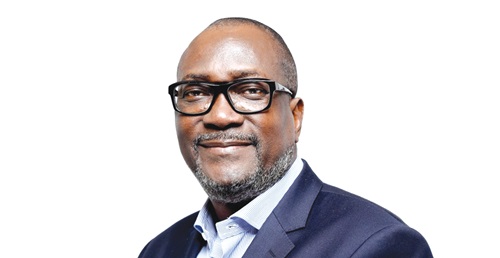Ghana is constitutionally a liberal democracy, following a referendum in April 1992.
Many observers outside Ghana regard the country as a rare regional phenomenon: a consolidated liberal democracy. Many Ghanaians, however, do not believe that the country’s democracy is thriving.
Janus-faced democracy
In Roman mythology, Janus is the god of beginnings, gates, transitions, time, duality, doorways, passages and endings.
He is often depicted with two faces, one looking to the past and the other to the future. Ghana can be regarded as a Janus-faced democracy.
This is because the country’s political past is littered with false turns, including military coups and, over time, declining popular faith in democracy’s ability to improve things for the mass of citizens.
Looking to the future, how can Ghana’s democracy be strengthened?
The question is especially relevant at the present time as many neighbouring countries are undergoing political turmoil: military coups, citizen unrest and repressive governments.
What can Ghana do to encourage democratic success?
Presidents and parliaments in Ghana are elected by dutiful citizens every four years, as the constitution demands.
Beyond elections, however, Ghana’s liberal democracy is a constant challenge whose success is dependent not only on regular free-and-fair elections but also on consistent pressure from below, from a vibrant and vigorous civil society.
Democracy may fail unless citizens, via civil society, use their moral agency to support democratic institutions to moderate economic and social inequities which, many Ghanaians appear to believe, are getting worse.
Multiparty system
Ghana’s democratic strengths include a functioning multiparty system; periodic constitutional and electoral reforms designed to improve the structure and process of elections; a lively civil society and independent media; and widespread acknowledgement of the importance of democratic norms by both the mass of ordinary Ghanaian citizens and political elites, behaviourally, attitudinally and constitutionally.
Ghana’s democratic weaknesses include electoral processes saddled with monumental flaws that undermine the integrity of elections and pose a threat of democratic relapse; an executive presidency with wide, some say excessive, powers; ethnically/tribally based politics that threaten to undermine political stability; periodic post-election violence; and civil society’s quite limited policy influence.
Democracy travails
The travails of Ghana’s democracy were recently highlighted by Yaw Nsarkoh, former Executive Vice-President of Unilever Ghana and Nigeria in his recent public lecture at the Ghana Academy of Arts and Sciences on June 24, entitled ‘Iniquities of Iniquity in Our Santa Claus Democracy’.
For Mr Nsarkoh, Ghana’s democracy is not built on genuine independence but is “a grand illusion rooted in a distorted reality”. He claims that Ghana’s “democratic project didn’t begin from a position of real sovereignty. Instead, “What we called independence was, at best, symbolic. It wasn’t backed by control over our productive forces.
You had a flag, an anthem and a dark-skinned President, but that doesn’t make you truly independent.”
In his lecture, Mr Nsarkoh went on to describe Ghana’s political space as a dangerous parody of democracy that functions more like a “public auction for the highest bidder” than an example of a participatory governance system. “The electorate,” he said, “has been reduced to ballots. Not citizens. Just ballots.”
Meritocracy
A member of President John Mahama’s constitutional review committee recently commented to me that democracy in Ghana is seriously undermined when “appointment to critical public offices is based purely, and solely, on party loyalty or support. For our two parties … merit has no place in their political lexicon.”
Merit, the constitutional review committee member claimed, does not matter in Ghana, “this mediocrity of a state.”
A functioning democracy depends both on consistent engagement of knowledgeable and capable – that is, meritorious – individuals and citizens’ broad participation and representation.
Recent Afrobarometer data indicate that many Ghanaians have negative views of Ghana’s democracy.
This is linked to widespread perceptions of increased petty and state-level corruption, pessimism about the direction of national development, and declining confidence that the government has the will or ability to fix things.
In 2023, over three-quarters of Ghanaians (77%) believed that “the level of corruption in the country” was increasing, while more than eight in 10 (87%) thought Ghana was “heading in the wrong direction”.
Africa is home to the world’s youngest population, and Ghana is no exception.
Fifty-seven per cent of Ghanaians are under the age of 25.
Africa is experiencing a wave of youth-led protests fuelled by frustrations over rampant corruption, poor governance, high living costs caused by recent international shocks that have driven up food and fuel prices and rising unemployment.
Gen Z and millennials have recently protested not only in Ghana but also in Kenya, Mozambique, Nigeria, Uganda and, now, Togo.
Such activism may intensify unless grievances are systematically and successfully addressed.
Responding to protests with state violence and repression may work in the short term but it is not a long-term solution to an enduring problem of confidence of the youth in the government’s ability to fix things.
Ghana’s democracy
What of democracy in Ghana? What can it do to deal with existential despair among the youth?
President Mahama’s spokesperson, Felix Kwakye Ofosu, opined in May that “substantial progress has been made” in areas such as infrastructure, health care, education, job creation and anti-corruption efforts.
Pensplusbytes, a Ghana-based not-for-profit organisation, awards the government a score of 76% - indicating a “Good Performance” rating.
This is encouraging but progress must continue. Without clear and consistent evidence of improvement in Ghanaians’ lives, the new government’s honeymoon may be brief. All eyes are on Ghana’s democracy.
The writer is an Emeritus Professor of Politics, London Metropolitan University, UK.
The writer’s email address: tsjhayn1@londonmet.ac.uk

